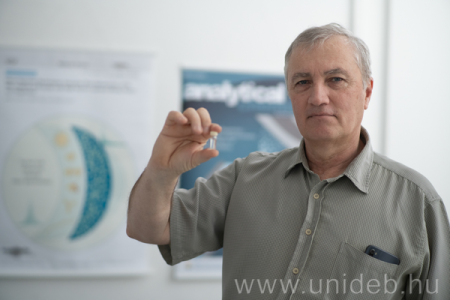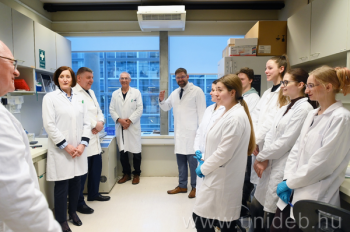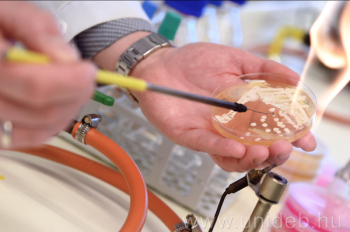A new procedure developed by a research group at the Faculty of Science and Technology of the University of Debrecen (FST, UD) may open up new avenues and provide a roadmap for future mass spectrometry analyses. This new testing method significantly reduces the time and cost of mass spectrometry measurements of proteins both in the pharmaceutical industry and protein research. The publication that summarizes the scientific finding has appeared in one of the most prestigious international chemistry journals, Angewandte Chemie.
Hírek Natural science címkével
Two researchers from the Faculty of Science and Technology at the University of Debrecen (DE TTK) gave a presentation in Japan at the Hungarian Pavilion at Expo Osaka on their efforts to save the Hungarian birch mouse, now on the brink of extinction.
Hungarian and foreign researchers analyzed data from more than 2.6 million zoo births to find out whether it is truly random which gender is born more frequently among mammals and birds. The results show surprising distortions that could jeopardize the long-term success of species conservation programs. The research was published in the prestigious journal Scientific Reports.
The nests of which host species are most often chosen by birds that leave the hatching and rearing of their offspring to others? This is the question that a researcher from the University of Debrecen sought to answer in the framework of an international collaboration using data collected about more than 6,000 bird species worldwide.
István Pócsi and Tamás Emri, professors from the Department of Molecular Biotechnology and Microbiology at the University of Debrecen, are ranked among the best in the world for their outstanding achievements in fungal stress biology. They research human, plant and insect pathogenic fungi as well as industrial microorganisms, while their research could also be relevant for industrial and pharmaceutical development.
The Faculty of Science and Technology of the University of Debrecen has hosted the first meeting of CubeSat developers. At the event, students from four institutions of higher education had the opportunity to learn about each other's ideas and the funding opportunities provided by the European Space Agency to help even more universities to launch their own satellites into space for scientific purposes in the future.
The Central European Research Infrastructure Consortium (CERIC) has presented the work of the University of Debrecen as a major research achievement. Applied research at the Department of Inorganic and Analytical Chemistry, Faculty of Science and Technology, focuses on aerogels.
A record number of students attended 4th International Academic Conference at the University of Debrecen. Organized by International Student Union (ISU), the event was attended by over 400 students, who listened to presentations on academic work in the faculties, TDK opportunities and the institution's talent management programs.
TAPI Hungary Industries Kft. has recently supported the Faculty of Science and Technology of the University of Debrecen with two million HUF. The company’s contribution has been used to purchase laboratory equipment.
Biotechnology is one of the fastest growing fields of science: pharmaceuticals, medicine, agriculture, food and the environment are all using such techniques. The University of Debrecen launched the biotechnology programme in 1987, and it has been available as a stand-alone BSc course for three years.









